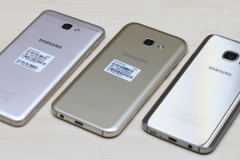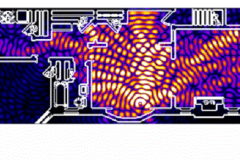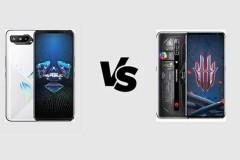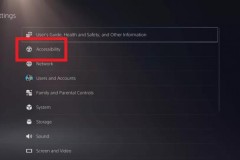Chicago, Feb. 21, 2023 (GLOBE NEWSWIRE) -- 5G technology promises to revolutionize healthcare. It will enable doctors to deliver better and faster care, saving time and money, while providing better patient outcomes.
5G will enable faster data transmission and higher bandwidths, allowing doctors to access and share medical data quickly and securely. This will enable doctors to make faster, more accurate diagnoses and treatments. It will also allow doctors to remotely monitor and treat their patients in real time, reducing the need for patients to travel to medical facilities.
5G will also enable the development of advanced medical devices and applications, such as wearable medical devices, robotic surgery, and remote healthcare monitoring. This will allow doctors to provide more accurate diagnoses and treatments, while also providing better patient outcomes.
5G in healthcare market in terms of revenue was estimated to be worth $215 Million in 2021 and is poised to reach $3,667 million by 2026, growing at a CAGR of 76.3% from 2021 to 2026 according to a latest report published by MarketsandMarkets™. 5G stands for the fifth generation of mobile communication technology. With each generation’s new technology and standards, there have been improvements in transmission speed and network capacity. 5G represents a big leap in cellular technology and in healthcare by providing essential levels of connectivity to enable a new health ecosystem, one that can meet the needs of patients and providers accurately, efficiently, cost-effectively, conveniently, and at a substantial scale. This massive network will include billions of low-bitrates and low-energy connected health monitoring devices, remote sensors, and clinical wearables, with 5G providing a backbone infrastructure for IoT.
Download an Illustrative overview: https://www.marketsandmarkets.com/pdfdownloadNew.asp?id=248695375
5G in Healthcare Market Scope:
| Report Coverage | Details |
| Market Revenue in 2021 | $215 Million |
| Estimated Value by 2026 | $3,667 Million |
| Growth Rate | Poised to grow at a CAGR of 76.3% |
| Market Size Available for | 2019-2026 |
| Forecast Period | 2021–2026 |
| Forecast Units | Value (USD Million) |
| Report Coverage | Revenue Forecast, Competitive Landscape, Growth Factors, and Trends |
| Segments Covered | By Component, Application, End User and Region |
| Geographies Covered | North America, Europe, Asia Pacific, Latin America, Middle East and Africa |
| Report Highlights | Updated financial information / product portfolio of players |
| Key Market Opportunities | Role of AI in 5G healthcare |
| Key Market Drivers | Increasing adoption of telehealth and robotics surgery due to COVID-19 |
Notable 5G in healthcare mergers and acquisitions for 2021 – 2022 include:
- AT&T and Telefónica: AT&T announced plans to acquire Telefónica’s U.S.-based MVNO business, which will help it expand its 5G network into the healthcare sector.
- Apple and CVS Health: Apple and CVS Health announced a partnership to launch a new health and wellness service, which will leverage the power of 5G to allow patients to access digital health services.
- Microsoft and NTT DoCoMo: Microsoft and NTT DoCoMo announced a joint venture to create a 5G-based healthcare platform for Japanese consumers.
- Ericsson and Philips: Ericsson and Philips announced a strategic alliance to develop 5G-enabled medical devices and healthcare solutions.
- Verizon and Samsung: Verizon and Samsung announced a strategic partnership to develop 5G-enabled healthcare solutions and services.
Growth Drivers of 5G in healthcare Market from macro to micro.
Macro Level:
- High Penetration of Smart Devices: The increasing penetration of smart devices such as smartphones and tablets, coupled with the widespread availability of high-speed internet, is driving the demand for 5G in healthcare.
- Government Initiatives: Governments around the world are actively promoting 5G technology in healthcare sector to streamline patient care and monitoring.
- Increasing Adoption of Cloud Technology: The growing adoption of cloud technology in healthcare sector is driving the demand for 5G services, as it offers faster data transfer and enhanced security.
Micro Level:
- Reduced Latency: 5G technology has the potential to reduce latency, resulting in faster response time for healthcare applications.
- Improved Network Capacity: 5G technology offers greater network capacity, allowing more data to be transferred at once.
- Enhanced Security: 5G technology offers enhanced security and encryption, which is essential for the safe transmission of sensitive healthcare data.
- Cost Savings: 5G technology can reduce costs associated with healthcare operations, such as the costs of infrastructure and maintenance.
- Improved Patient Care: 5G technology can improve patient care by enabling remote monitoring and diagnosis, as well as providing real-time access to patient data.
Request for FREE Sample Pages: https://www.marketsandmarkets.com/requestsampleNew.asp?id=248695375
Hypothetic challenges of 5G in healthcare market in near future:
- Data Security: 5G networks will require new security measures to ensure the protection of patient data. Health data is particularly sensitive and must be kept secure against cyber threats.
- Regulatory Requirements: 5G networks must comply with local and international regulations governing the use of patient data.
- Interoperability: 5G networks must be compatible with existing healthcare systems and applications in order to maximize the benefits of the technology.
- Cost: The cost of implementing and maintaining 5G networks in healthcare settings could be prohibitive.
- Network Coverage: 5G networks will require a more extensive infrastructure than existing networks, which could pose a challenge in rural and remote areas.
Top 3 use cases of 5G in healthcare market:
- Telemedicine: 5G will enable real-time, high-quality medical video streaming, allowing doctors to remotely diagnose and treat patients. This will revolutionize healthcare by making medical care more accessible and affordable, as well as reducing wait times and eliminating the need to travel for medical appointments.
- Wearable Devices: With 5G, healthcare providers will be able to monitor and track patient health data in real-time using connected wearable devices. This will help doctors stay on top of their patients’ health conditions, detect any warning signs early, and provide timely interventions to prevent any further deterioration.
- Augmented Reality: 5G will enable healthcare providers to use augmented reality (AR) for medical imaging and visualization. This will provide doctors with a more accurate and detailed view of their patients’ conditions, allowing them to make better and more informed decisions. AR can also be used to train medical students, allowing them to get a more holistic view of the human body.
Get 10% Free Customization on this Report: https://www.marketsandmarkets.com/requestCustomizationNew.asp?id=248695375
Related Reports:
Healthcare IT Market
Telehealth Market, Telemedicine Market
Healthcare Analytics Market
Medical Device Connectivity Market
mHealth Solutions Market

















